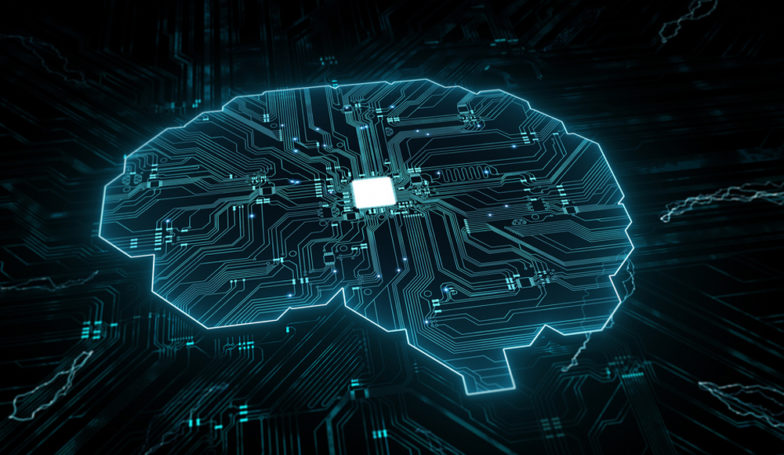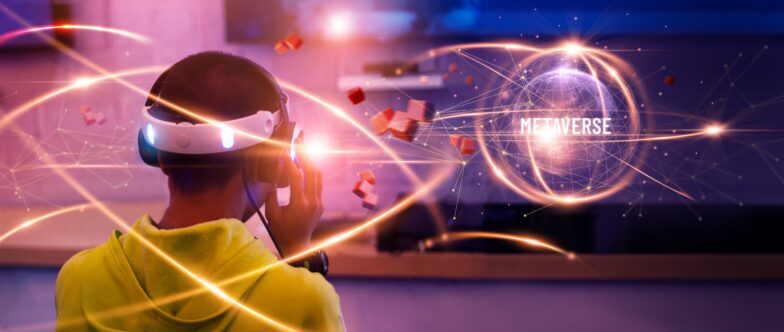3 Ways My Christian Worldview Prepared Me for AI Advances
As a basketball fan, I’ve greatly enjoyed the three-point shooting revolution of the past decade or so. Star NBA players with elite shooting ability have changed the way the game is approached. More and more teams realize that prioritizing shots worth 50% more points (despite going in slightly less often than other jump shots) clearly leads to more total points over the course of a game, which continues to be reinforced as more and more players prioritize developing their shooting prowess accordingly.
The AI Revolution
A similar revolution has occurred in the field of artificial intelligence (AI) within the same time period. Most everyone has likely heard at least a little about this AI revolution powered by a technique called deep learning.
I happened to be smack-dab in the middle of my computer science graduate school career when AI reached this radical turning point. It was so sudden that one course in particular (advanced computer vision) underwent a complete change of material the semester that I took it. All conventional techniques were more or less removed and replaced with a survey of successful applications of deep learning, relying primarily on cutting-edge papers posted to ArXiv (many of which eventually made it to publication in peer-reviewed journals and/or major conferences). As I made my way through the remainder of the graduate program and successfully applied the technology in professional settings, I came to recognize that my Christian worldview had prepared me quite well for this revolution in at least three respects.
Expectation of Order
Many Christian thinkers recognize the general applicability of mathematics to the universe as a natural expectation for a universe designed by a divine Mind. The scientific revolution of the Enlightenment and the centuries that followed uncovered mathematical relationships between various quantifiable phenomena, from the positions of planets and stars to the interactions between chemicals in a test tube. Although many laws of physics are well understood today, they can’t be applied to a given system until its initial conditions have been determined with sufficient precision. Scenarios abound in which those initial conditions require locating specific objects or signals in streams of data, with perhaps the most straightforward example being a visible object within a camera image.
Before the deep learning revolution, the most common approach for efficiently accomplishing these tasks (of locating objects and signals) was for a human expert to handcraft a good set of mathematical patterns to search for in the data, requiring more or less a brand-new model and pattern set for each individual problem. Deep learning now slots into this area by providing a mathematical framework that is general enough for a computer to be able to automatically find enough mathematical patterns to succeed at the task—given only a set of correctly labeled examples. As a consequence, functioning mathematical models have now been constructed for things well beyond what many people would have imagined possible, such as classifying animals in images. For a Christian, discovering that the created universe is structured and ordered beyond what we previously imagined should hardly be surprising—especially in light of scriptural passages such as Job 38–40.
Good and Evil
From an ethical perspective, AI raises a series of issues to be reckoned with. Interestingly, key components of a Christian worldview perfectly prepare one to wrestle through many of these. Most technologies—not just AI—have the ability to be used for good or evil purposes. AI essentially takes this phenomenon to the maximum extent possible. AI’s development has naturally followed a technological arc of continuing to empower people with less and less expertise (and/or less and less funding!) to construct functional deep learning models to accomplish . . . well, almost anything! This is clearly awesome when it comes to the development of low-cost health diagnoses, but not so much when it comes to bad actors producing deepfake videos.
Christians have a strong philosophical framework available for wrestling through this dilemma in the notion that humans are created in the image of God, but corrupted by sin. The former provides great creativity along with an inclination towards doing good, while sin drives humans toward selfish behavior. Technology can amplify either aspect toward extremes, and the scriptural concept of sin also encompasses simply “missing the mark” and traits like laziness.
To that end, the implementation of AI itself poses plenty of ways for someone to unintentionally cause harm by not properly evaluating an AI model, which takes hard work. Anything based on mathematical statistics is vulnerable to the small sample size problem, and AI is certainly no exception to that. However, the situation for AI can be much more problematic due to the fact that the mathematical structures used often have so many degrees of freedom that the AI model might be able to effectively “memorize” the data it’s trained on without having “learned” enough useful data patterns that will apply to new data samples. So, if the people in charge of training an AI model don’t put in the time and effort to carefully organize distinct sets of training and testing data, they might release an AI model that will ultimately perform nowhere near as well as expected, possibly causing harm.
Confronting Human Pride
AI can also challenge our pride, as I can personally attest. I was one of those experts who were very good at handcrafting problem-specific mathematical models and patterns when I was first introduced to deep learning. I immediately experienced a harsh visceral reaction against the idea that a single type of generic mathematical model was sufficient to solve all of the problems for which I had worked so hard to come up with clever specific solutions. This reaction made no logical sense. It is always in my best interest to continue to find better ways of honing my craft, so why in the world should I be upset when a better method crops up? Yet, I’m sure many others can attest to similar situations in life. Personally, I’m not convinced that any other philosophical framework outside the biblical concept of sin can more fully capture why we tend to behave this way in these sorts of situations.
Regardless, setting aside our pride and humbling ourselves is a consistent exhortation throughout Scripture, and every Christian who undergoes serious discipleship actively trains to be able to do this since it doesn’t come naturally. I’m certainly glad that I pushed through it to embrace the good that I can accomplish with the very best methods available in my field of expertise.






